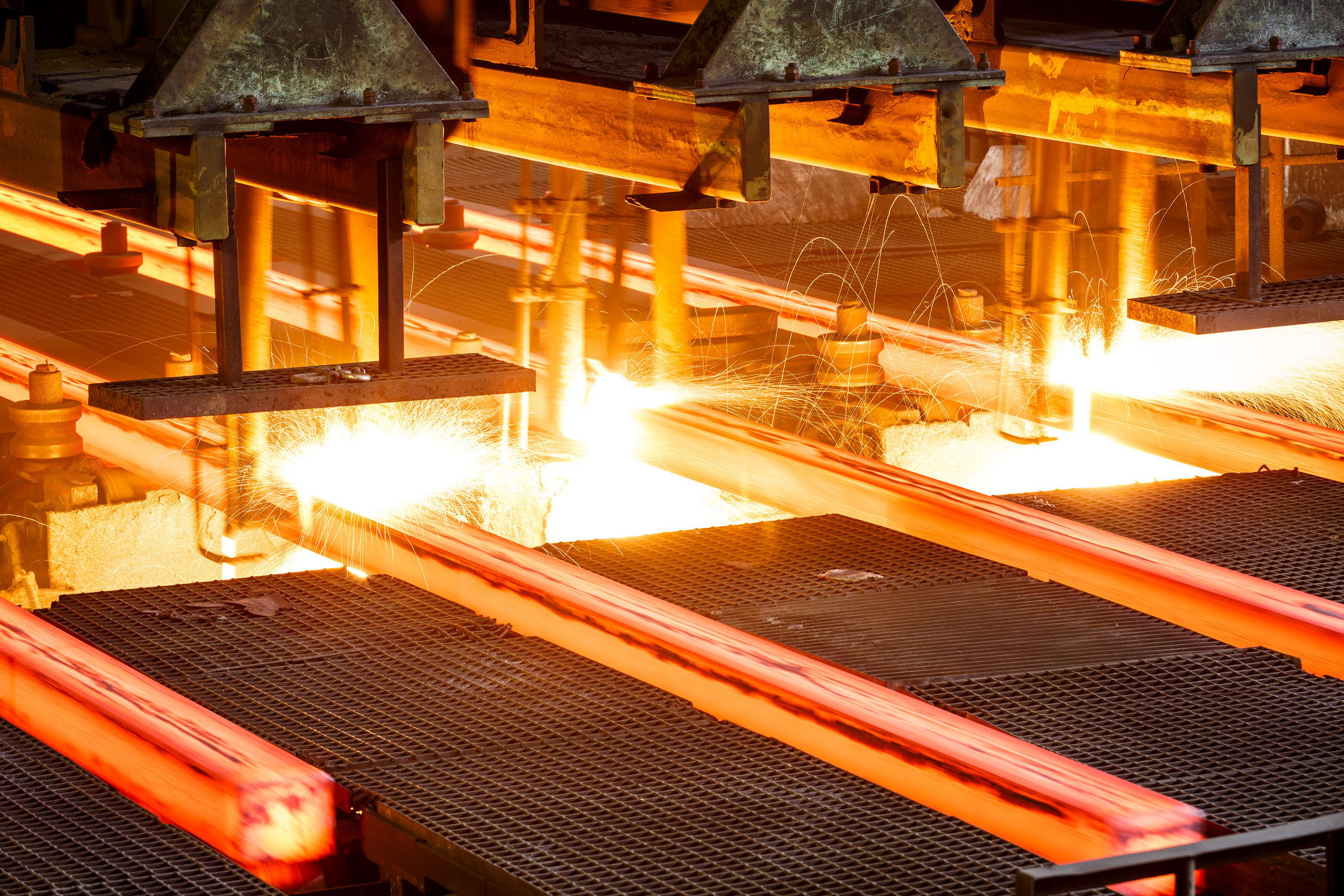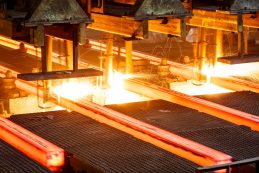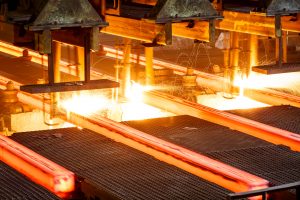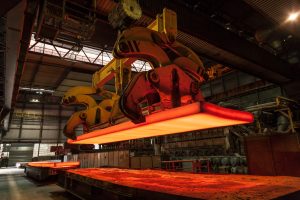The steel industry has forever relied upon hydraulic power for a few good reasons. Hydraulics provides the only method of power to meet the demands of steel production such as:
- Imperviousness to the high heat generated in the harsh steelmaking environment
- The power density and force required to process slabs of steel
- Precision processing with coiling, cutting, and slitting is achievable even in the high heat and high-power environment
No other method of power makes sense with the severe applications of heat and force required in steel mills. Just one steel mill plant can have hundreds of hydraulic power units.
Hydraulic Power Tolerates the High Heat of the Steel Industry
Just about every area of a steel mill is going to be hot, from the coke oven itself, which requires hundreds of cylinders to the processing plant, hydraulic power can withstand the heat. The ambient heat alone around the coke oven, at the cars, the pushers, and the doors, is intense. This steelmaking process begins with converting coal to the more efficient and cleaner fuel source, coke, which can burn extremely hot and produce very little smoke. Coke has multiple roles in the steelmaking process as it is used as the fuel to provide the heat necessary to melt iron ore, it also “steals” oxygen from the ore through a chemical reducing agent to reduce iron oxides and leave only pure iron behind. Coke also acts as permeable support for the molten material in the furnace.
Coke ovens are multi-level, extremely large buildings where oven doors are opened and closed with hydraulic cylinders and motors to push and transfer material on a coke pusher car. These actuators and cylinders are designed to withstand extreme temperatures.
One inherent danger when working in a heated environment like a steel mill is the risk of fire. Hydraulic systems must perform with reliability in the midst of tremendous heat while not contributing to any danger. Traditional hydraulic fluid is highly flammable and any cylinder failures or leaks present a high risk for ignition, particularly in the presence of scorching coke. Due to this risk, mineral oil is typically not used in the steel industry but rather fire-resistant hydraulic fluids like water-glycol or the use of water in oil emulsions are common.
The caveat with both of these safer fluids is that traditional sealing options are inappropriate. Glycol fluids require sealing technology that is capable of both water resistance and high heat. Some nitrile seals work well for glycol, although not typically at high temperatures. Viton seals perform well in high temperatures with heat resistance but are not so compatible with water-based fluids. PTFE seals are the best choice to withstand exposure to water and high heat.
Stucchi offers heavy-duty hydraulic quick couplings and adapters designed and engineered with PTFE seals as well as Nitrile and Viton where appropriate to support hydraulic steel industry equipment.
Only Hydraulics Provide The Heavy Duty Power Needed In Steel Making
After the production of coke, the next step is mixing with ore in the blast furnace, a massive structure that can be as tall as several hundred feet with a diameter up to 50 feet and relies on hydraulics for motion control. The coke melts the ore to create pig iron in the blast furnace, which can produce up to 15,000 tons daily at some large steel mills. The iron is exposed to pure oxygen in the furnace, which is the beginning of the conversion into steel.
Various additives are incorporated at this stage to form hundreds of steel alloys, and then the molten steel is moved to the next stage, where continuous casting forms slabs of red-hot steel. Most of the steel output in North America is in slabs, although a continuous caster can also make diameter bars.
The hot strip mill is an intensely hot area, the workhorse of steel making, and heavily outfitted with automated hydraulic equipment. It takes the power of hydraulics to transform a slab of steel several inches thick into sheet metal. Powerful hydraulic cylinders squeeze large metal slabs into other forms of metal, with heavy-duty flanged construction and some rated up to 5,000 psi. PTFE seals are well suited for the hydraulic cylinders used in steel mills.
Hydraulic Precision Processes Steel for Finished Product Production
Once metal slabs are transformed into coiled sheets of steel, they are then ready to be finished into products for various industries like construction, appliances, and automotive. Cold rolled coiled metal sheets go through a pickling process to remove any contamination and then they are galvanized to provide resistance to rust. This process of uncoiling metal sheets, putting them through various processes, and recoiling them again requires intensive hydraulic power and precision.
Stucchi Offers Hydraulic Solutions for the Steel Industry
Stucchi supports the steel industry with heavy-duty threaded, flat-face quick couplings and multi-coupling plates designed and engineered to withstand high heat with reliable power and precision. Our multi-coupling plates offer endless solutions to connect multiple lines including fluid power, pneumatic, electric, and other media systems. The intense processes in the steelmaking industry require heavy-duty hydraulic equipment that can be relied upon to perform without failure.
Stucchi has been providing hydraulic solutions for more than 60 years, offering quality products and knowledgeable hydraulic support. Our hydraulic specialists possess decades of experience and in-depth market expertise to customize the right hydraulic products and solutions to meet your needs. Contact us to learn more about our hydraulic solutions for the steel industry.




